Mozambique: Terrorist attacks force closure of 21 schools - AIM report
Mozambique attacks: Country at risk of becoming a failed state – researcher

File photo: Lusa
Mozambican researcher João Feijó argues that Mozambique is at risk of becoming a “failed state” in relation to the armed conflict in the province of Cabo Delgado, warning that the conflict may reach the proportions of a civil war.
“When we reach a situation in which the state is unable to perform its essential functions, which functions must guarantee the administration of the territory, and provide medical assistance and education, the risk is that the country will become a failed state,” Professor João Feijó, a researcher at the Rural Environment Organisation (OMR), told Lusa.
Professor Feijó says the armed attacks in Cabo Delgado are the result of “historical socio-economic contradictions” in the region being exploited by “radical and violent religious movements”, and capitalising on the alleged discontent of thousands of young people who feel excluded.
“Economically fragile, [the state] today reveals an inability to guarantee the safety of its employees and of the population,” thereby invalidating the administration of the territory, he stressed.
According to Feijó, evidence shows the existence of a “group of rebels with a military organisation”.
“The persistence of the conflict, the apparent ability to recruit local and disaffected young people and the hypothesis of the existence of a social support base, increase the risk of the conflict transforming into a civil war,” he warned.
Feijó says that this is an “embarrassing” situation for the government, accusing the Mozambican executive of trying to hide the “reality on the ground” by placing obstacles to journalists and researchers in accessing information.
The researcher notes that the need to increase military personnel on the ground has implications for public accounts and for the cost of investment by multinationals, with an impact on the renegotiation of contracts, and weakening the state.
On the other hand, the abandonment of agricultural areas as a result of the violence forebodes a “humanitarian crisis” in Cabo Delgado.
Feijó says that the government’s figures are “clearly underestimated” in comparison with those presented by public and social media.
Managing the conflict in Cabo Delgado will be a “serious” challenge for Mozambique and countries in the region, international development agencies and local organisations, he adds.
The current legislature will have to guarantee population security, reinforce military and intelligence forces and international cooperation, both with its own resources and with training on human rights, he suggests.
Creation of inclusive investment, agricultural training, transportation, trade and workshops are suggested as other ways to halt armed groups.
The armed attacks in Cabo Delgado, where natural gas megaprojects are in development, have already caused at least 350 deaths and affected 156,400 people.
The only claims of responsibility for the attacks are from the jihadist Islamic State group, but experts and authorities consider their presence on the ground scarcely credible.



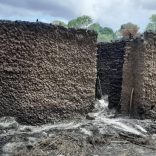
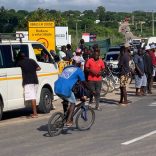
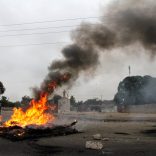
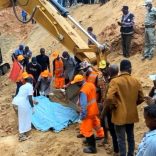
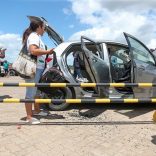



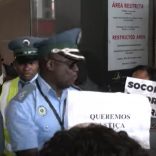
Leave a Reply
Be the First to Comment!
You must be logged in to post a comment.
You must be logged in to post a comment.